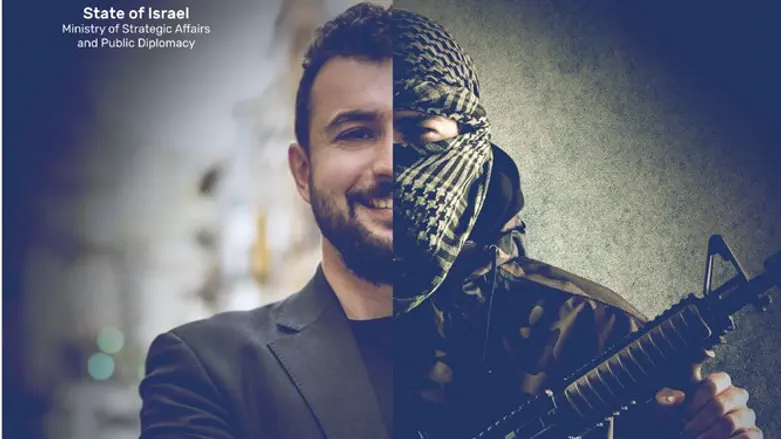
A news item came across by computer screen last week that made me think of one the first opinion columns I wrote in late 1995. I called it something along the lines of “the terrorists among us.”
The column dealt with the November 1995 FBI raid on the offices of then-Professor Sami Al-Arian at the University of South Florida in Tampa. That raid had followed several years of Al-Arian’s apparent involvement with Middle East terror groups, most notably, Palestine Islamic Jihad (PIJ).
The news of the raid caught my eye as it was PIJ that claimed credit for the April 1995 terror attack in which my daughter Alisa was murdered. It took a long time for the US government to bring Al-Arian up on charges for his role as a financial supporter of PIJ and, therefore, criminally responsible for the murders of Alisa near the Jewish community of Kfar Darom and another US citizen by PIJ in Israel.
Al-Arian was not operating in a vacuum. While others established The USF Middle Eastern Committee at the college in 1991 it was Al-Arian co-founded with Ramadan Abdullah Shallah and Khalil Shikaki the World Islam Study Enterprise, “WISE.” The ostensible goal of these college professors was to sponsor academic meetings and occasionally publish papers. But it was a mask for their real agenda—advancing extreme Islam in the United States and supporting terrorism abroad.
And so it went for Al-Arian until November 1994 when a PBS television documentary, Steve Emerson’s "Jihad in America," alleged that Al-Arian was the head of PIJ’s domestic support network. It was followed a few months later by a two-part series in The Tampa Tribune questioning ties among USF, WISE and a charity, the Islamic Committee for Palestine. That same month, USF's inspector general found irregularities with WISE graduate students and the hiring of an Arabic instructor.
With the death of Fathi Shikaki, the recognized head of PIJ, in October 1995, Shallah disappeared from USF and surfaced in Damascus, Syria as the new head of PIJ. For Al-Arian it seemed his safe world was coming to an end with the November 1995 raid. But it wasn’t to be.
It took the US government almost 7 years to indict him. I testified before the grand jury that finally issued its indictment in February 2003 on 17 counts under the Patriot Act and at the trial. It was a disaster for the government prosecution.
The FBI had intercepted faxes between Al-Arian and PIJ operatives congratulating them on the Kfar Darom attack. Other faxes used code to describe transfers of money that the US couldn’t trace. Arguments over Arabic translations of words used in the faxed communications confused the jury. Al-Arian was acquitted on eight counts. The jury was deadlocked on the remaining nine counts. He later struck a plea bargain and admitted to one of the remaining charges in exchange for being released and eventually deported to Turkey in 2015.

Despite several one-off attacks Americans have experienced since 9/11, we haven’t seen another successfully organized attack. It's not for lack of trying. Maybe it’s due to continuing vigilance by federal and state law enforcement offices around the country. The news report that caught my eye last week was of one Ali Kourani, who the US Department of Justice reported, “was sentenced to 40 years in prison based on terrorism, sanctions, and immigration convictions arising from Kourani’s illicit work as an operative for the Islamic Jihad Organization, Hizballah’s external attack-planning component.”
The news report that caught my eye last week was of one Ali Kourani, who the US Department of Justice reported, “was sentenced to 40 years in prison based on terrorism, sanctions, and immigration convictions arising from Kourani’s illicit work as an operative for the Islamic Jihad Organization, Hizballah’s external attack-planning component.”
According to the Department of Justice, Kourani “searched for suppliers who could provide weapons for such attacks, identified people who could be recruited or targeted for violence, and gathered information about and conducted surveillance of potential targets within our country.”
Despite several one-off attacks Americans have experienced since 9/11, we haven’t seen another successfully organized attack. It's not for lack of trying. Maybe it’s due to continuing vigilance by federal and state law enforcement offices around the country. The Department of Justice has prosecuted 157 U.S. homegrown terrorism cases in 30 states just since 2013, and 220 since 9/11. Maybe it’s due to people who have seen something, saying something. Or, maybe it’s due to just dumb luck; Kourani came to police attention in 2013 after running a Bronx traffic light with 190 pairs of counterfeit Ugg boots in his car.
A lot has changed in the 24 years since I wrote my column about Al-Arian and the attempt to bring him to justice. The handling of the Al-Arian and Kourani cases is night and day.
Sure, Al-Arian has been deported, and it’s not the kind of penalty I would have liked to have seen imposed but at least he’s out of the country and not able to spread his murderous poison here. And I’m hopeful that one day he will get the ultimate sentence.
As for Kourani, who lawfully entered the U.S. in 2003, obtaining a bachelor of science degree in biomedical engineering in 2009 and a master's in business administration in 2013, a 45-year sentence takes him off the streets and makes us all a bit safer.
What both cases demonstrate is that American law enforcement cannot let its guard down for a minute when it comes to protecting us from those who would kill us. Those who hide behind a university position and those who appear to be asleep in the wings. They can be your next-door neighbor.
